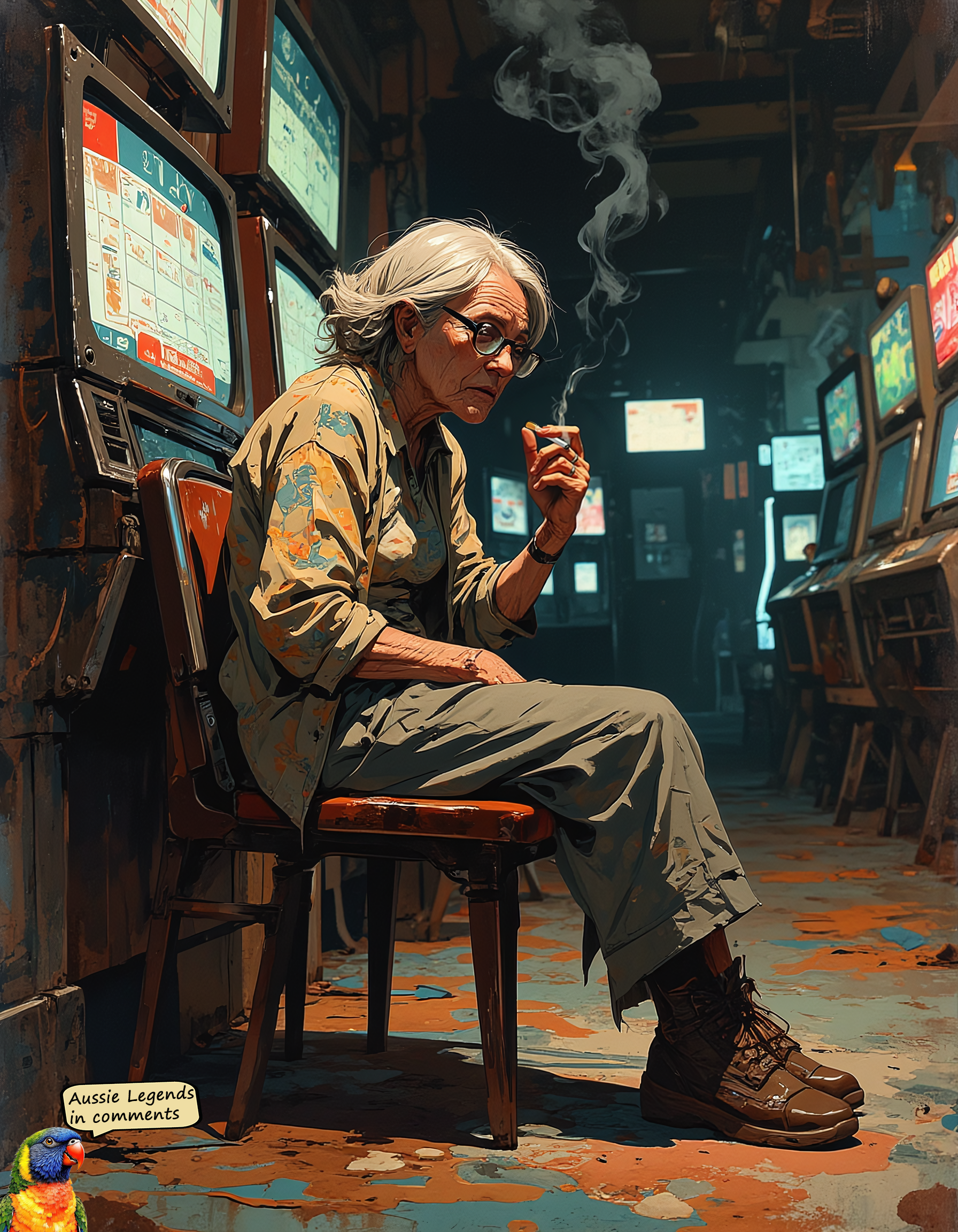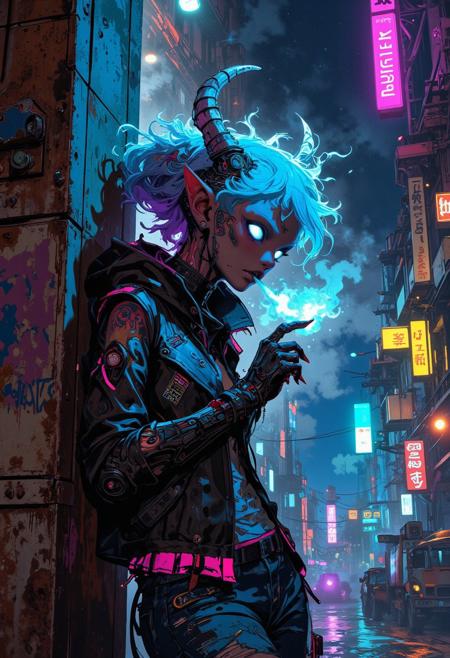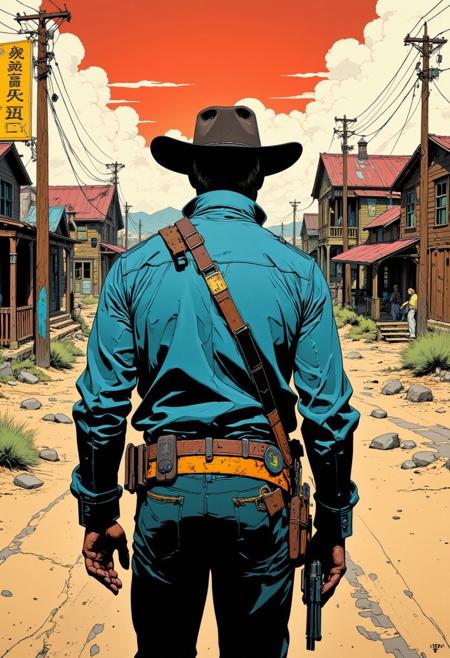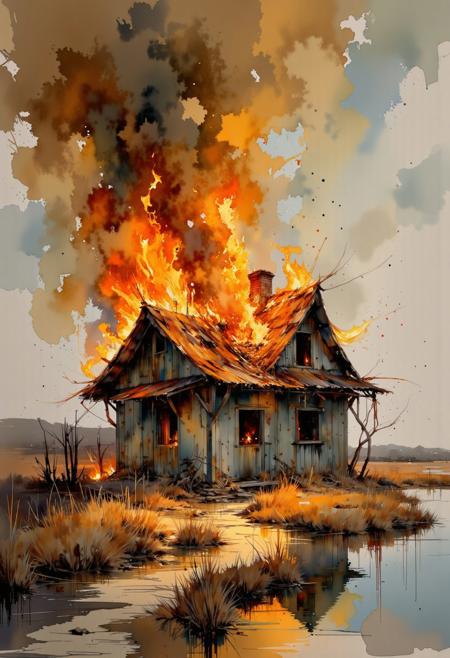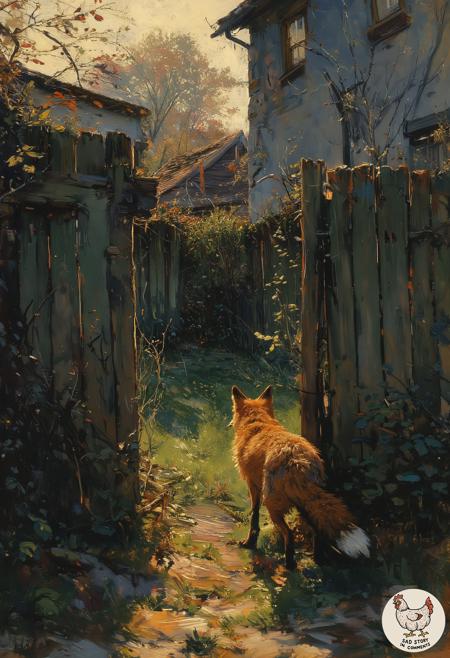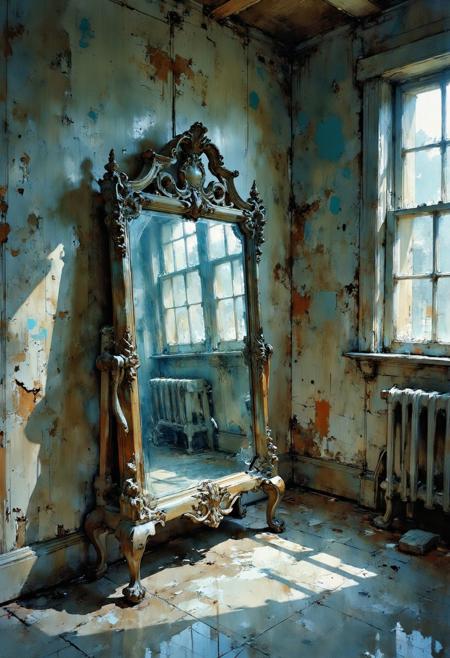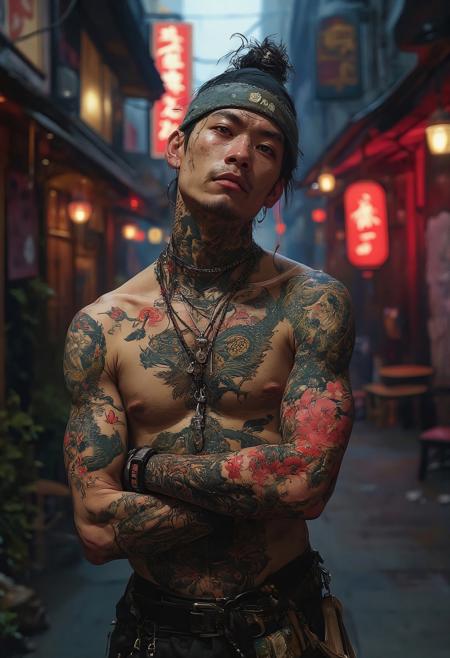An elderly caucasian woman sits slouched facing the bright screen of an automated poker machine, her thin shoulders hunched forward. The machine's screen is not visible but it's the glow of its cheap flickering lights illuminate the old woman's face unflatteringly. Thick glasses magnify her tired eyes, distorting them behind smudged lenses. Her gray hair is disheveled, falling in uneven strands, and deep wrinkles map her worn face. She holds a cigarette with an orange filter between her fingers, its ash hanging precariously, while the other hand rests limply on the machine’s buttons. Her faded floral blouse and fraying cardigan hang loosely on her frail frame, paired with wrinkled trousers and scuffed shoes. The setting is bleak, with a stained, gaudy carpet beneath her chair and walls lined with TVs broadcasting horse racing. These details dissolve into abstract watercolor- like strokes at the edges, muted browns and grays bleeding into a hollow, endless void. The scene captures a raw, unflattering moment—a portrait of quiet despair as the glow of the machine and the haze of smoke form a lifeless, solitary vignette
